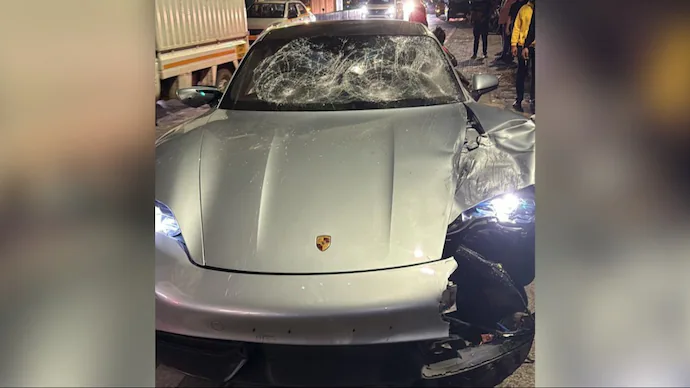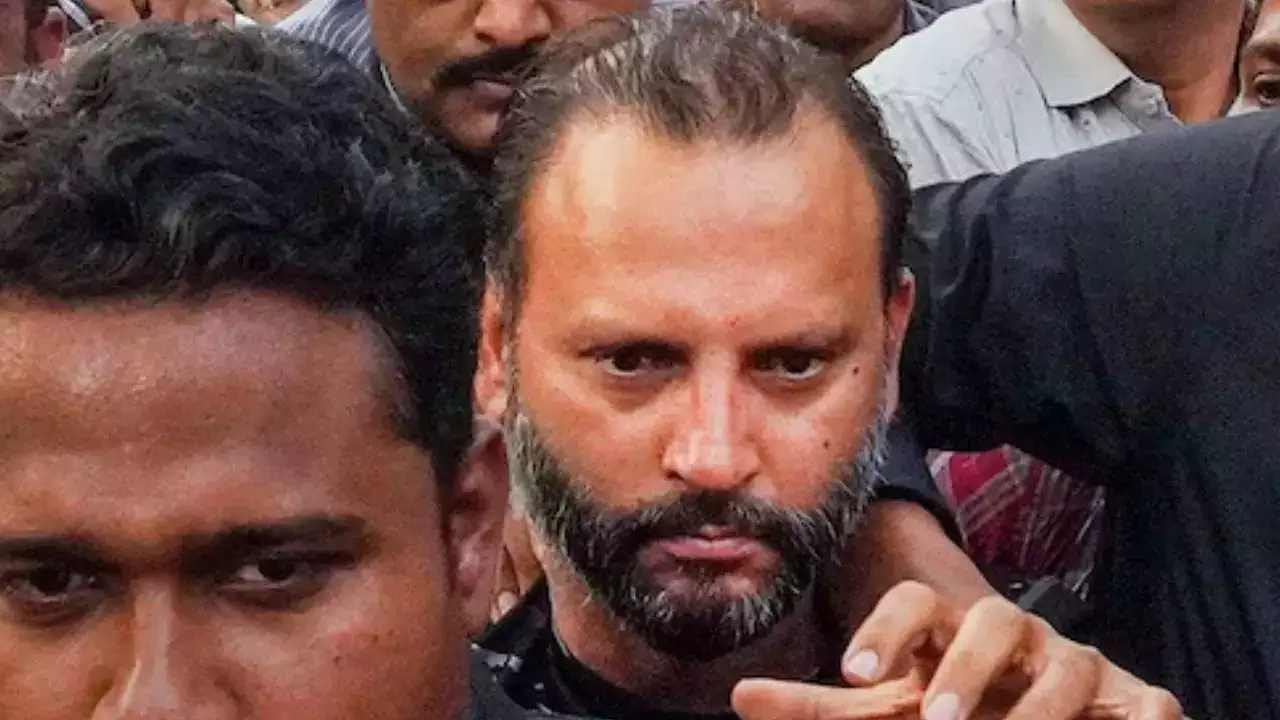Introduction
Pune Porsche Crash Update, In the early hours of May 19, 2024, Pune’s Kalyani Nagar area became the site of a tragic and shocking incident when a Porsche Taycan, driven by a 17-year-old under the influence of alcohol, crashed into two bike-borne IT professionals, resulting in their deaths. The incident not only highlighted the dangers of reckless driving but also uncovered a series of events involving alleged corruption and manipulation to protect the accused.
The Incident
The Porsche crash claimed the lives of Aneesh Awadhiya and Ashwini Koshta, both software engineers from Madhya Pradesh. On that fateful night, the Porsche, speeding at over 200 kmph, collided with the victims’ bike. A nearby auto-rickshaw driver, Ameen, narrowly escaped the accident and later recounted the harrowing details. According to Ameen, there were three boys in the Porsche, all visibly intoxicated. After the accident, they tried to defuse the situation by promising to compensate for the damages. Despite their attempts, the severity of the incident could not be downplay.
Initial Reactions and Arrests
Following the crash, the Pune Regional Transport Office (RTO) took swift action by canceling the temporary registration certificate of the Porsche. The registration, initially done in Bengaluru, was sent back to initiate the de-registration process. The police were quick to respond, arresting the minor along with his father and grandfather. The minor was initially granted bail on the condition of writing a 300-word essay on road safety. A decision that sparked public outrage. Consequently, the Juvenile Justice Board revoked the bail, ordering the minor to remain in an observation home until June 5.

Allegations of Corruption and Manipulation
As the investigation progressed, shocking revelations came to light. Dr. Vinayak Kale, the dean of Sassoon General Hospital, was sent on compulsory leave. After it was reveal that he had appoint Dr. Ajay Taware as the medical superintendent based on recommendations from influential political figures. This connection suggested a potential cover-up to protect the minor.
One of the most damning accusations was the alleged swapping of the minor’s blood sample with that of his mother Shivani Agarwal. Reports indicate that the doctors involved in the sample collection. Dr. Taware and Dr. Shrihari Halnor along with a class IV staffer. Atul Ghatkamble, manipulated the samples to show that the minor was not intoxicated at the time of the crash. This act of tampering raised serious questions about the integrity of the hospital staff and the extent of the influence wielded by the minor’s family.
Political Ramifications
The incident soon escalated into a political controversy. Maharashtra’s medical education minister Hasan Mushrif and NCP MLA Sunil Tingre were implicate in the scandal. Dean Kale’s admission of following ministerial orders for Dr. Taware’s appointment further fueled the blame game. Mushrif defended himself by stating that he could not be aware of every individual’s actions in his department. While Kale claimed he was merely executing orders from above.
Adding to the complexity, sources indicated that Sunil Tingre had distanced himself from the senior leadership of the Ajit Pawar-led NCP, raising suspicions about his involvement and whereabouts. Meanwhile, Shivani Agarwal, the minor’s mother, went incommunicado following the allegations of her involvement in the blood sample swap.
Legal Proceedings and Investigations
The Pune Crime Branch intensified their investigation, focusing on the alleged corruption and tampering. A special investigation team (SIT) was deploye to Sassoon Hospital to scrutinize the actions of the involved medical personnel. The SIT discover that the blood samples were drawn in areas not cover by CCTV cameras, deliberately chosen to avoid detection. Dr. Halnor’s act of handing over the syringe to an unidentified person rather than discarding it raised further suspicions.
In court, Assistant Commissioner of Police (ACP) Sunil Tambe sought an extension of the remand for the accuse doctors and the hospital staffer. Arguing that custodial interrogation was necessary to uncover the full extent of the corruption. The court grant the extension until June 5. The defense lawyers argue against the need for further custody, but the court was convince of the necessity for a thorough investigation.
AI-Based Digital Reconstruction
In an innovative step, the Pune Crime Branch decided to use artificial intelligence (AI) tools for a digital reconstruction of the crash. This technology aims to recreate the events leading up to the accident. Providing a comprehensive view of the incident without needing the minor to revisit the accident site. The reconstruction will incorporate forensic inputs, vehicle movements, and other critical data points to establish a clear narrative of the crash.

Ongoing Developments
As the investigation continues, Pune Porsche Crash Update remains mired in complexity and controversy. The involvement of high-profile individuals and the alleged manipulation of evidence have turned the Pune Porsche crash into a significant legal and political issue. The revelations about the blood sample swap and the political connections have drawn widespread attention and criticism.
The demand for justice for the victims, Aneesh Awadhiya and Ashwini Koshta, remains strong. The public and media continue to scrutinize every development, ensuring that the case does not fade into obscurity. The use of AI for digital reconstruction marks a significant step in modern investigative techniques. Potentially setting a precedent for future cases.
Also Read: Pune Porsche Crash: Fatal Accident, Bribery Scandal, and Arrests
Pinterest: Khabarey
Conclusion
The Pune Porsche crash update serves as a stark reminder of the perils of reckless driving and the far-reaching consequences of corruption and influence. As the legal proceedings and investigations unfold, the focus remains on ensuring accountability and justice for the victims. The case has highlighted the need for stringent measures against drunk driving and the importance of maintaining integrity within institutions responsible for upholding the law.






